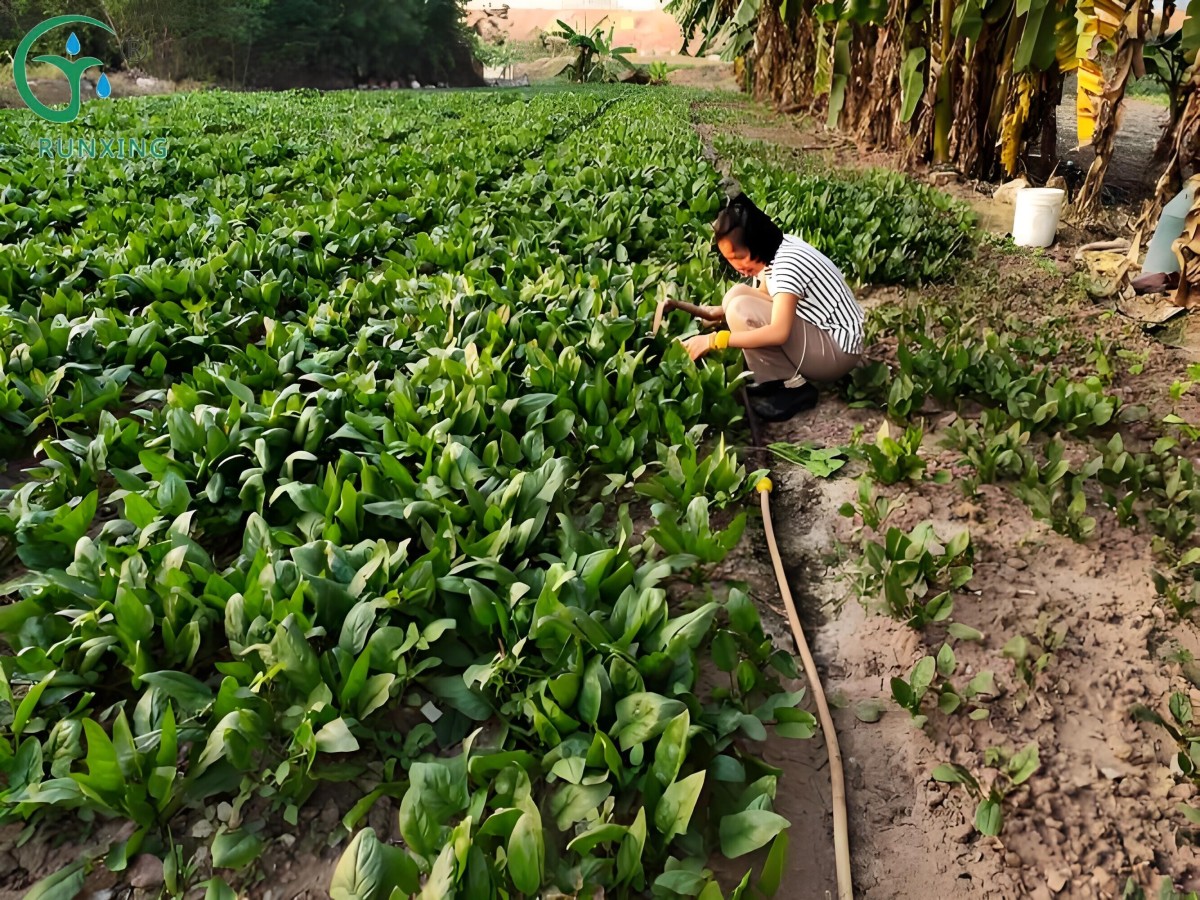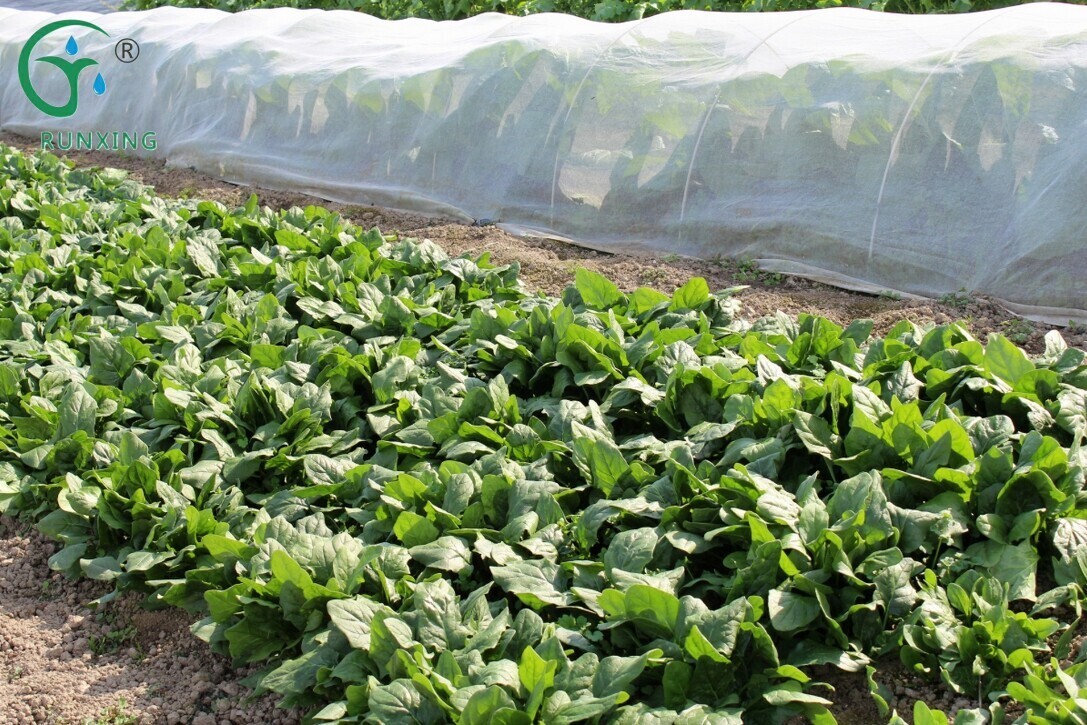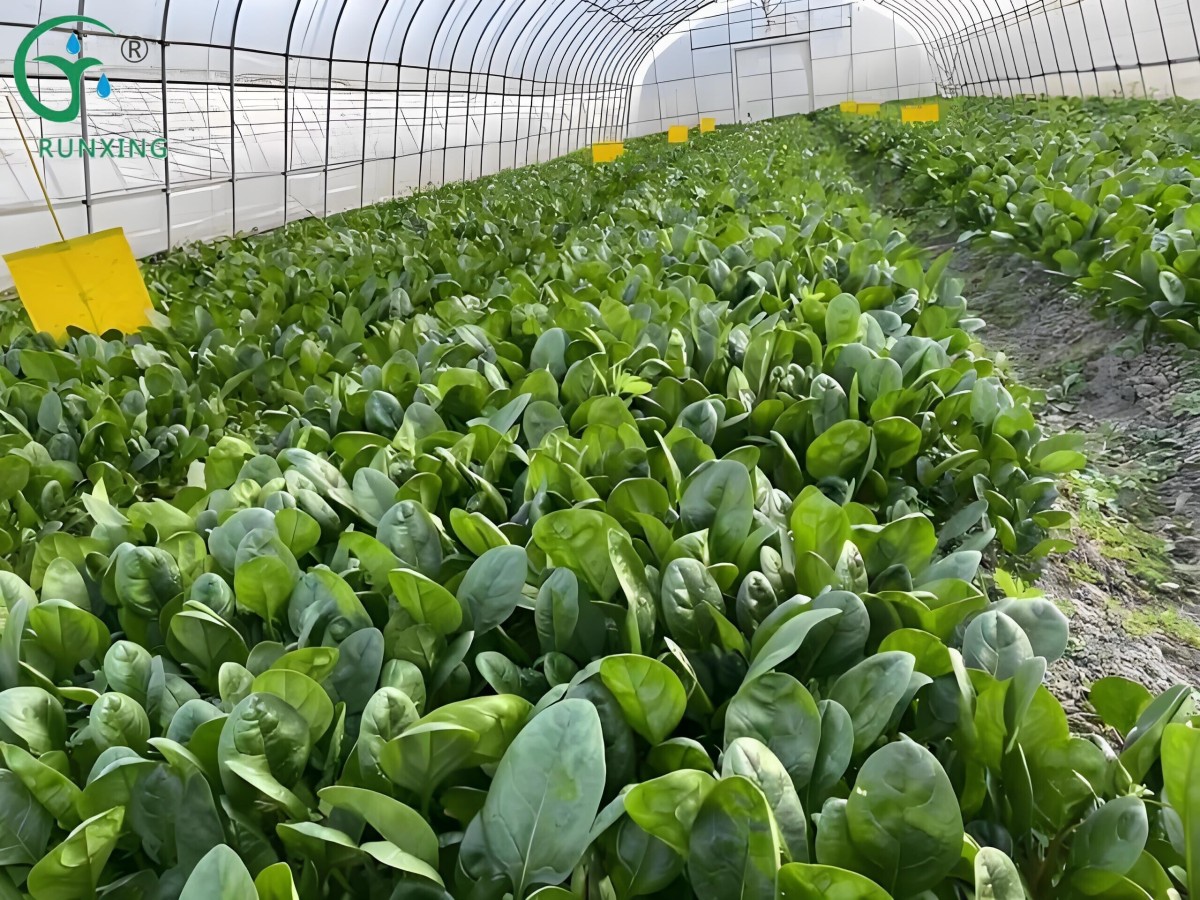A Guide to Brazilian Spinach Cultivation and Drip Irrigation Systems
When exploring the cultivation of Brazilian spinach, the application of drip irrigation systems becomes a significant aspect that cannot be overlooked. This article will provide a detailed introduction to whether drip irrigation is necessary for Brazilian spinach cultivation, the required drip irrigation equipment, installation methods, water usage control, as well as cultivation tips, helping you better understand and practice efficient Brazilian spinach farming.

I. Is Drip Irrigation Necessary for Brazilian Spinach Cultivation?
Brazilian spinach thrives in sunny, well-drained, fertile soil. Due to its developed root system and high demand for water and nutrients, combined with its intolerance to waterlogging, drip irrigation systems are particularly important during cultivation. Drip irrigation systems can precisely control water supply, preventing root rot caused by excessive soil moisture, while enhancing fertilizer utilization and promoting healthy spinach growth.
II. Required Drip Irrigation Equipment
Drip irrigation systems mainly consist of a water source, pump, filter, fertilizer injector, main pipeline, lateral pipelines, and drippers. When selecting equipment, consider the following factors:
Water Source and Pump: Ensure stable and adequate water supply.
Filter and Fertilizer Injector: Prevent impurities from clogging drippers and achieve integrated water and fertilizer management.
Main Pipeline, Lateral Pipelines, and Drippers: Layout reasonably to ensure even water and nutrient supply to each spinach plant.

III. Laying and Installation of Drip Irrigation Equipment
Planning Layout: Based on the actual conditions of the cultivation site, reasonably plan the layout of the main pipeline, lateral pipelines, and drippers.
Installing Equipment: Install the water source, pump, filter, fertilizer injector, main pipeline, lateral pipelines, and drippers in sequence according to the plan.
Inspection and Debugging: After installation, conduct system checks and debugging to ensure tight connections and no leakage.
IV. Water Usage and Control
The water demand of Brazilian spinach varies with growth stages. Early in growth, water demand is lower, gradually increasing in the mid-to-late stages. Drip irrigation technology meets spinach's needs at different growth stages by precisely controlling water supply.
Developing an Irrigation Plan: Based on spinach's growth needs and local climate conditions, reasonably develop an irrigation plan.
Following the Principle of "Less but More Frequently": Avoid excessive irrigation at once, which can lead to water waste and soil compaction.
Observation and Adjustment: Observe spinach growth and adjust irrigation amounts in a timely manner.
V. Tips for Better Spinach Cultivation
In addition to the application of drip irrigation systems, the following cultivation tips also contribute to improving Brazilian spinach yield and quality:
Soil Preparation: Choose loose, fertile soil rich in organic matter, conduct deep plowing, and add organic fertilizer.
Sowing Management: Select high-quality seeds, sow evenly on the soil surface, and maintain appropriate spacing.
Management and Maintenance: Regularly water, fertilize, weed, and loosen soil to maintain soil moisture and aeration.
Pest and Disease Control: Adopt chemical pesticides, biological pesticides, physical control, and other methods for prevention and treatment, ensuring healthy spinach growth.
Timely Harvesting: When spinach grows to a certain size, harvest in a timely manner to avoid affecting the growth of other immature plants.
VI. Detailed Cultivation Tips
Watering: Keep the soil moist but avoid overwatering. Watering should avoid high noon temperatures to prevent leaf burning.
Fertilizing: Select appropriate fertilizer types and application rates based on spinach growth and soil fertility. Organic and compound fertilizers are commonly used.
Weeding: Regularly clear weeds to prevent them from competing with spinach for nutrients.
Soil Loosening: Regularly loosen soil to improve soil aeration and maintain soil moisture.
Pest and Disease Control: Adopt environmentally friendly methods such as biological pesticides to reduce the use of chemical pesticides.

Through reasonable soil preparation, sowing management, the application of drip irrigation systems, and meticulous management and maintenance, you can grow delicious Brazilian spinach at home. We hope this article provides valuable insights for you
If you have any needs, please contact us.
About Us
We are dedicated to offering innovative, water-saving, and labor-saving irrigation solutions for agriculture worldwide. Our focus on quality and continuous innovation drives the development and progress of the industry
LOGO
This stunning beach house property is a true oasis, nestled in a serene coastal community with direct access to the beach.
Opening Hours
Monday - Friday : 9AM to 5PM
Sunday: Closed
Closed during holidays
Contact
+18888888888
hezuo@eyingbao.com123 West Street, Melbourne Victoria 3000 Australia
